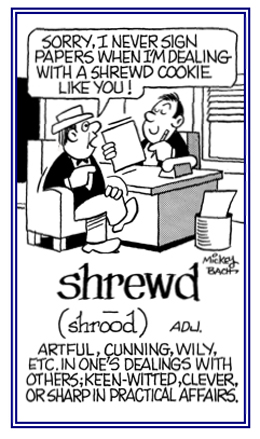sori-; shrew
(Latin: shrew, shrews)
In English, the word "shrew" is also used to describe a woman with a violent, scolding, or nagging temperament.
2. Like a shrew in form or habits; such as, the soricine bat.
2. A small nocturnal animal that resembles a mouse but is an insectivore, with velvety fur, a long pointed snout, and small eyes and ears.
Found worldwide, except New Guinea, Australia, and New Zealand.
3. An offensive term for a woman who is regarded as quarrelsome, nagging, or ill-tempered.4. Etymology: a "small mammal", Old English screawa "shrew-mouse"; unknown outside English.
An alternate Old English word for "shrew" was scirfemus, from sceorfan, "to gnaw".
The meaning "peevish, malignant, clamorous, spiteful, vexatious, turbulent woman" (Samuel Johnson, A Dictionary of the English Language) is c.1386, from an earlier sense of "spiteful person" (male or female), c.1250; traditionally said to derive from some supposed malignant influence of the animal, which was once believed to have a venomous bite and was held in superstitious dread.
Shrewish with the meaning of "scolding" is from 1565, originally "wicked, evil" (1375).
"The Taming of the Shrew"
A play (1593-1594?) by English dramatist William Shakespeare which was then produced as a movie (1967) starring Elizabeth Taylor and Richard Burton.
The central story of this play within a play is set in Verona, Italy, and describes Petruchio's attempts to win the wealthy but haughty and temperamental Katharina (the "shrew" of the title).
The protagonists make this a character study; as well as, a vociferous, or rowdy, farce. The expression "Kiss me, Kate" comes from Act II, scene i: "Kiss me, Kate, we will be married o' Sunday."
2. A tendency toward artful and cunning practices; tricky: The shrewd lender of money made it difficult for many people to repay their debts to him at a reasonable cost.
3. Astute or sharp in practical matters: The senator was a shrewd politician who was able to get many laws or legislative bills passed in congress.
4. Etymology: the term shrewd originally meant "wicked, dangerous". Its modern application as "astute" developed in the 16th century.
It was derived from shrew, "wicked man" and is generally believed to be from the same origin as the animal named the shrew which was originally thought to have a poisonous bite and was therefore feared as being wicked or bad.

Go to this Word A Day Revisited Index
so you can see more of Mickey Bach's cartoons.
2. Possessing, or based on, a clear understanding and good judgment of a situation, resulting in an advantage: "Her shrewdness helped her make the right financial investments."
3. An aggregation, or group, of apes.
2. A quarrelsome, ill-tempered disposition.
2. In a shrewish manner.
Although they look like a long-nosed mouse, the shrews are not rodents and not closely related. The shrew family is part of the order Soricomorpha.
Shrews have feet with five clawed toes, unlike rodents, which have four. They should not to be confused with tree shrews, which belong to their own unrelated order, the Scandentia.
2. Shrew teeth.
2. Shrewlike; of, like or pertaining to shrews.
